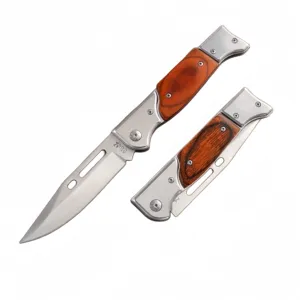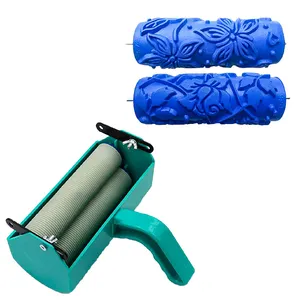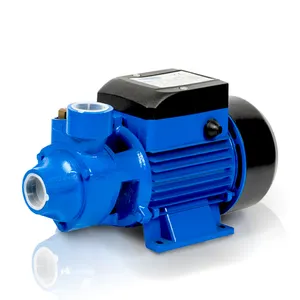Popular in your industry


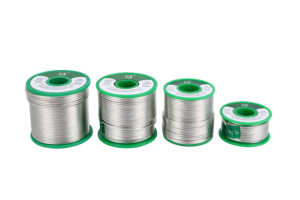



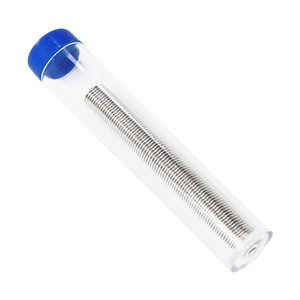








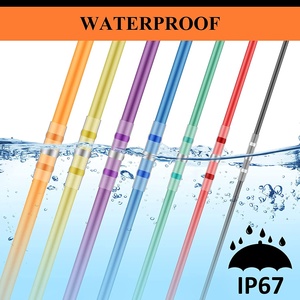








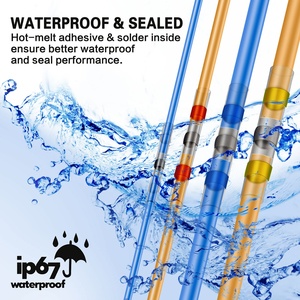











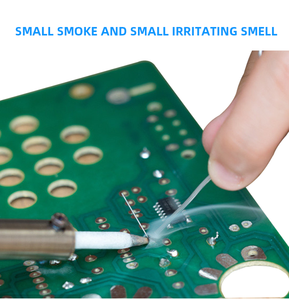




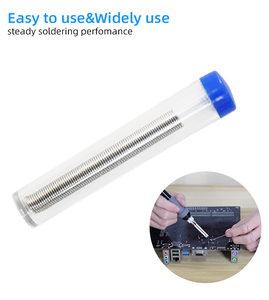



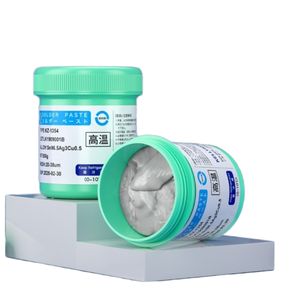

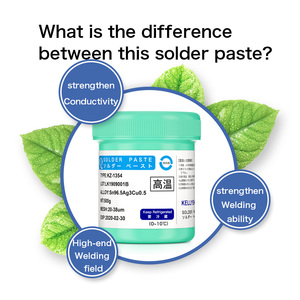







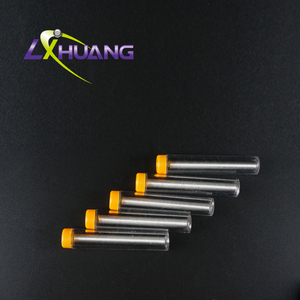










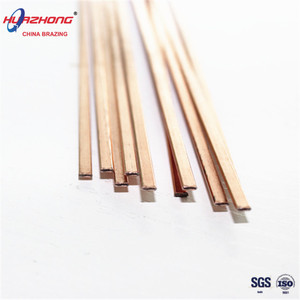







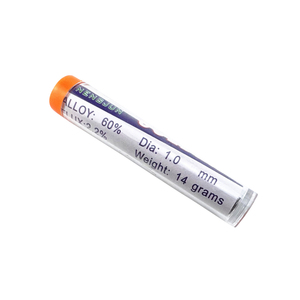
Related Searches:
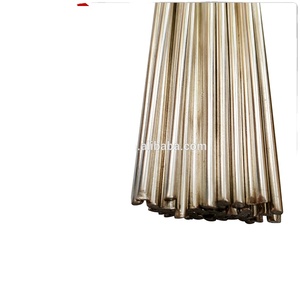

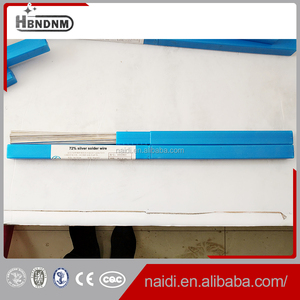
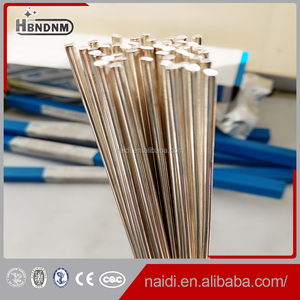
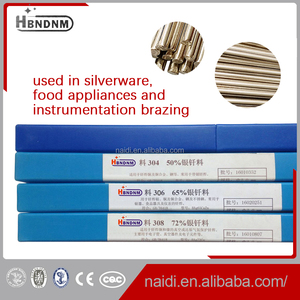
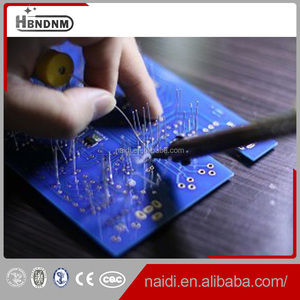




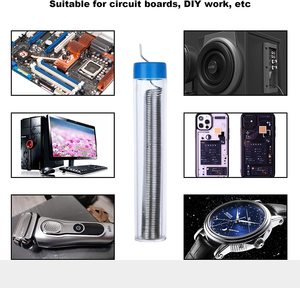





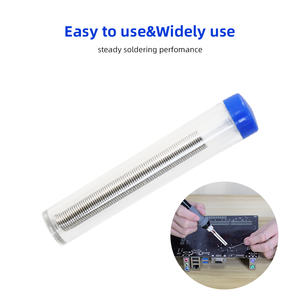


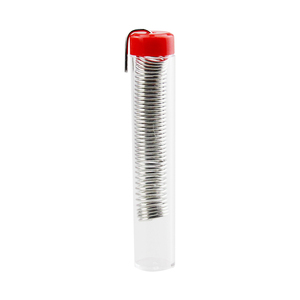
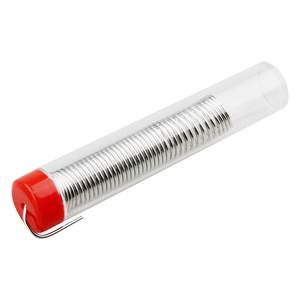






















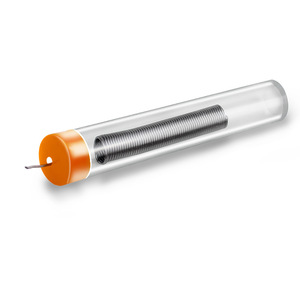
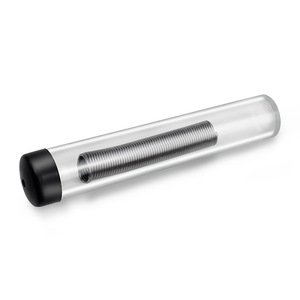













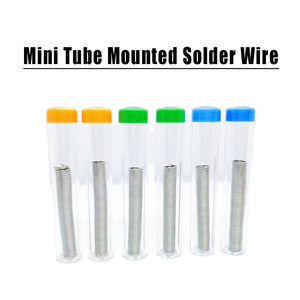


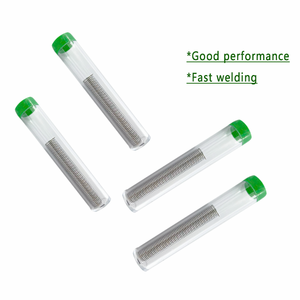


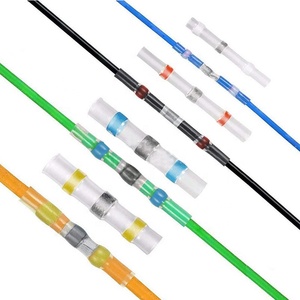


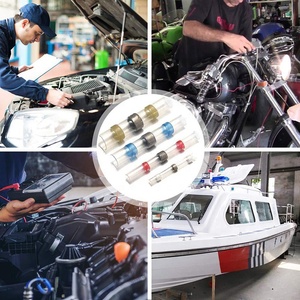


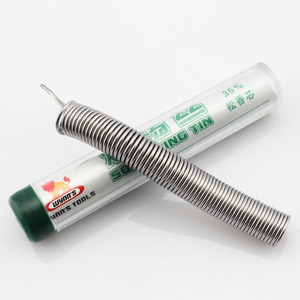
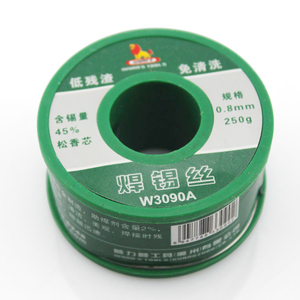




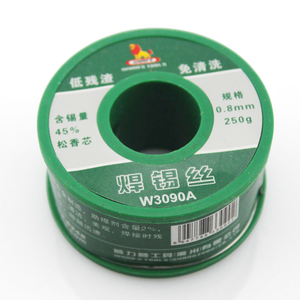




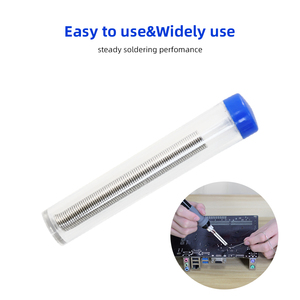






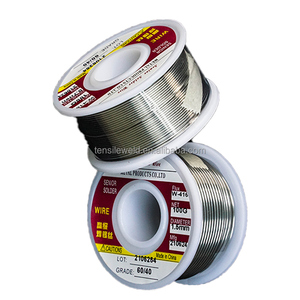
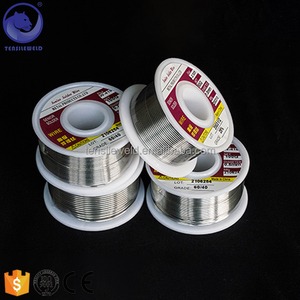


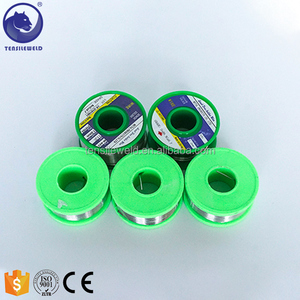




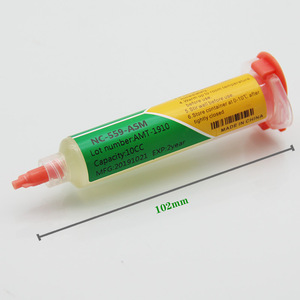




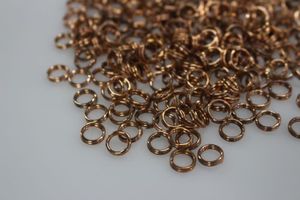


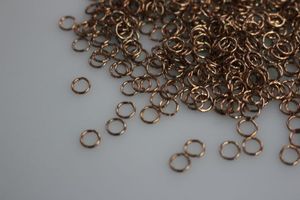


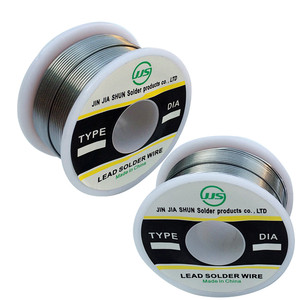
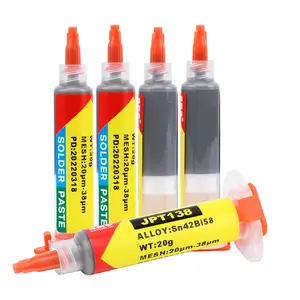




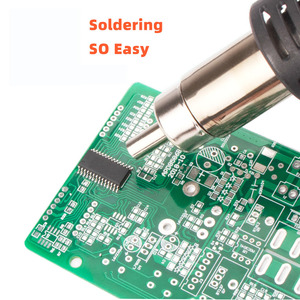
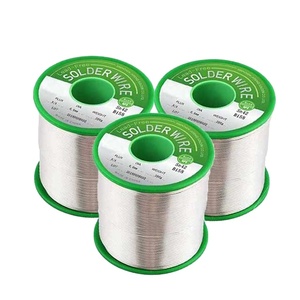
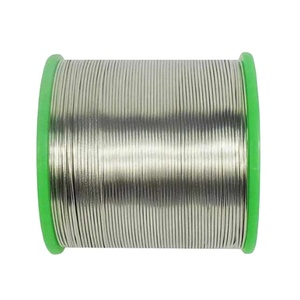













Top categories
About solder tube
A solder tube is an essential tool in the realm of metal joining, particularly designed for tasks such as joining copper tubing, soldering brass tube, and soldering hvac copper tubing. These tubes contain solder, a fusible metal alloy used to create a permanent bond between metal workpieces. The product comes in various compositions, including silver solder for copper pipe and 95 5 solder for copper pipe, catering to different melting points and bonding requirements.
Types and Characteristics of Solder Tubes
Diverse types of solder tubes are available, each designed for specific applications. For instance, soft solder copper pipe is typically used for plumbing and electrical work due to its lower melting point, making it easier to work with at lower temperatures. On the other hand, silver solder for copper pipe contains a higher percentage of silver, offering stronger joints suitable for high-pressure systems and HVAC applications. The 95 5 solder for copper pipe variant is another popular choice, known for its robustness in outdoor environments and resistance to corrosion. Each type of solder tube has been developed to meet the unique requirements of different joining tasks, ensuring a wide range of options for professionals in various industries.
Structure and Operation of Solder Tubes
The physical structure of a solder tube is designed for ease of use and efficiency. A typical tube consists of a cylindrical container housing the solder material, which is often in paste or wire form. For instance, a solder paste tube allows for precise application, with a nozzle that directs the solder to the exact location needed. In the case of induction soldering copper pipe, the solder is formulated to respond to the induction heating process, melting quickly and creating a strong bond upon cooling. The integration of these components ensures that the solder is applied consistently and effectively, resulting in reliable and durable metal joints.
Materials and Properties
The materials used in solder tubes are selected based on their properties and the requirements of the task. For example, solder aluminum tubing requires a material with a lower melting point to prevent damage to the aluminum during the joining process. The use of alloys such as tin-silver-copper in solder paste tubes provides a balance between workability and strength. The choice of materials also takes into account factors such as electrical conductivity, thermal conductivity, and resistance to environmental factors like moisture and temperature changes.
Business Usages and Applications
Solder tubes are indispensable in various business settings, from manufacturing plants to repair shops. In the electronics industry, for example, solder paste tubes are used to connect components on PCBs, ensuring the functionality of electronic devices. In the construction sector, joining copper tubing with solder tubes is a common practice for creating leak-proof piping systems. These products create business value by providing reliable solutions that ensure the longevity and performance of the systems they are used in, ultimately contributing to the efficiency and success of businesses.
Functions and Tasks
The primary function of a solder tube is to facilitate the joining of metal components. This can range from creating secure joints in copper piping for plumbing to establishing electrical connections in circuit boards. The versatility of solder tubes allows them to be used in a variety of tasks, including ac copper pipe soldering and soldering hvac copper tubing, where a durable and conductive joint is essential.
Distinctive Features and Capabilities
Solder tubes offer features that set them apart from traditional soldering methods. The copper pipe flameless soldering tool, for example, provides a safer and more controlled environment for soldering, eliminating the need for an open flame. The precision of solder paste tubes allows for accurate application, reducing waste and improving the quality of the joint. These unique selling points make solder tubes a preferred choice for professionals seeking efficiency and safety.
Benefits and Positive Outcomes
Using a solder tube brings numerous benefits, such as improved joint quality, reduced work time, and increased safety. The convenience of solder in a tube means that tasks can be completed on-site without the need for additional equipment, providing a portable and ready-to-use solution. The result is a streamlined process that enhances productivity and delivers high-quality results.
How to Use Solder Tubes Effectively
To use a solder tube effectively, it is important to apply the solder precisely where it is needed and in the correct amount. For instance, when joining copper tubing, the solder should be applied evenly around the joint to ensure a seal without gaps. Proper heating techniques should also be employed to ensure that the solder flows correctly and creates a strong bond.
Choosing the Right Solder Tube
Selecting the right solder tube involves considering the metals being joined, the operating environment, and the required strength of the joint. For example, silver solder for copper pipe is ideal for high-temperature applications, while a soft solder copper pipe may be chosen for its ease of use in low-temperature scenarios.
Cleaning and Maintenance of Solder Tubes
Cleaning and maintaining solder tubes is straightforward. After use, the nozzle of a solder paste tube should be wiped clean to prevent clogging. Storing the tubes in a cool, dry place will also help preserve the solder's quality and extend the shelf life of the product.
Installation and Integration
Integrating a solder tube into a soldering setup is simple. For automated processes, such as those using a welding manipulator, the tube can be fitted into the equipment, allowing for consistent application of solder during the manufacturing process. For manual applications, the user can apply the solder directly from the tube to the workpiece.
Target Audience and Meeting Needs
The target audience for solder tubes includes professionals in industries such as electronics, plumbing, and HVAC. These products meet the needs of this audience by providing a reliable and efficient means of joining metal components, which is essential for the integrity and functionality of their work. Whether it's for intricate electronic soldering or robust plumbing repairs, there is a solder tube designed to meet the specific requirements of the task at hand.

